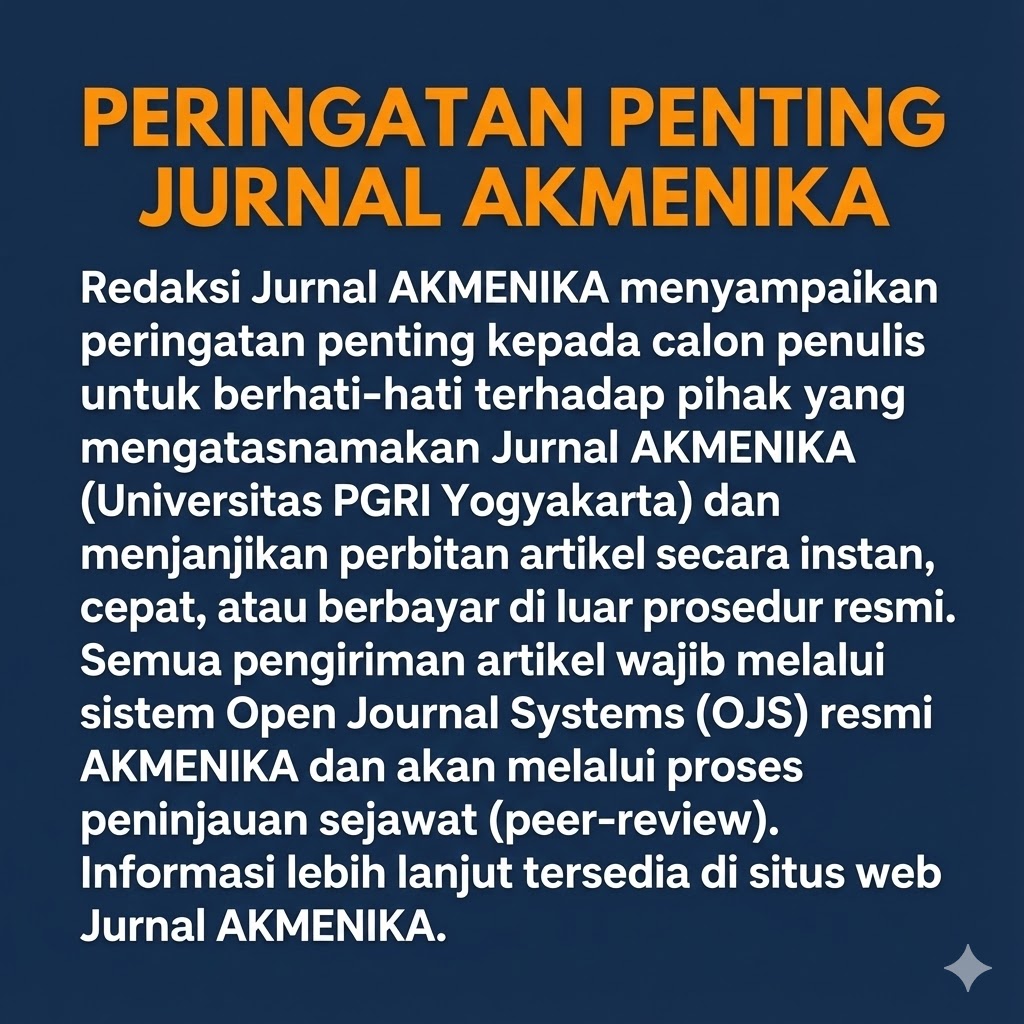Implikasi Corporate Social Responsibility Dalam Good Corporate Governance Untuk Mengurangi Konflik Keagenan
DOI:
https://doi.org/10.31316/akmenika.v17i1.659Abstract
The purpose of writing this article is to identify, study, map research related to CSR in reducing agency conflict. This article begins with the presentation of the concepts of Good Corporate Governance (GCG), Corporate Social Responsibility (CSR), CSR in GCG, and agency conflict. Identification is made by collecting articles in the field of financial management that are related to CSR, agency conflict, and corporate value. Furthermore, an assessment of these studies is carried out to determine the results of each article. Articles are grouped into two articles that support the existence of agency conflict in CSR and group that do not have agency conflict.
The method of review of CSR and agency conflict is carried out using previous studies. The identification, assessment and mapping of prior studies are not limited to new studies (less than ten years) but also reviews of more than 20 years. Based on the results of previous research, mapping can be synthesized the influence of CSR in reducing agency conflict.
The Implementation of CSR related to agency conflict in the field of financial management is still being debated. Based on empirical evidence, the results are still inconsistent. CSR activities that synergize financial performance, the environment, and society can reduce the use of cash flow that benefits managers so that it will increase the value of the company. On the other hand, empirical evidence that does not support CSR considers that managers use CSR for personal gain.
Keywords: GCG, CSR, Agency Conflict
Downloads
Published
Issue
Section
License
License and Copyright Agreement
In submitting the manuscript to the journal, the authors certify that:
- They are authorized by their co-authors to enter into these arrangements.
- The work described has not been formally published before, except in the form of an abstract or as part of a published lecture, review, thesis, or overlay journal.Â
- That it is not under consideration for publication elsewhere.
- That its publication has been approved by all the author(s) and by the responsible authorities – tacitly or explicitly – of the institutes where the work has been carried out.
- They secure the right to reproduce any material that has already been published or copyrighted elsewhere.
- They agree to the following license and copyright agreement.





.png)
.png)
.png)
1.png)
.png)
.png)
.png)







